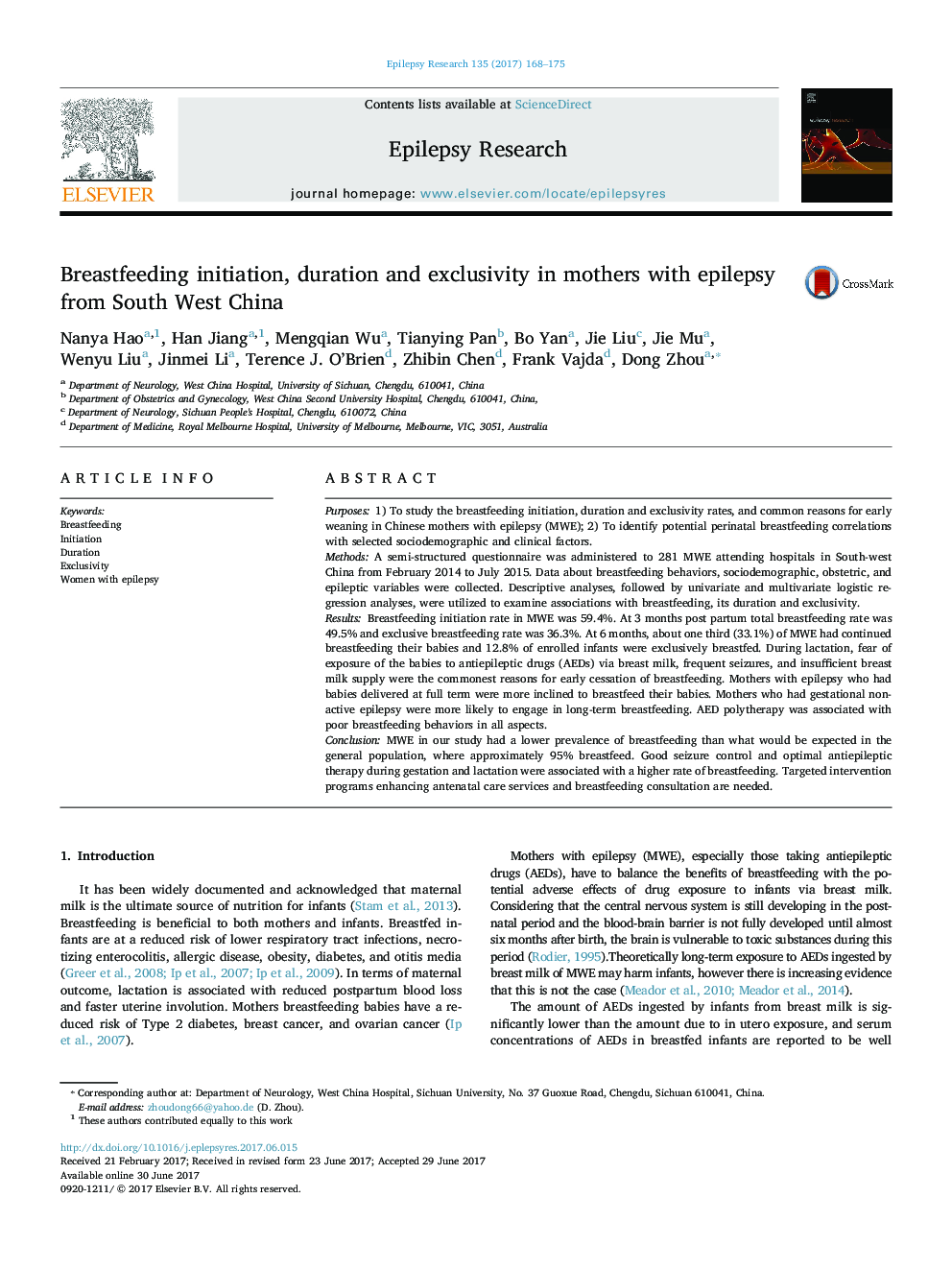| کد مقاله | کد نشریه | سال انتشار | مقاله انگلیسی | نسخه تمام متن |
|---|---|---|---|---|
| 5628740 | 1579888 | 2017 | 8 صفحه PDF | دانلود رایگان |
- Little published research exams the breastfeeding decisions of MWE and how they make the decisions. Current study is the first one in China.
- MWE in this study have a lower prevalence in every studied aspect of breastfeeding than what would be expected in general Chinese population.
- Epilepsy relative factors were the commonest reasons for early breastfeeding cessation.
- Having term delivery, achieving good seizure control, and AEDs non-polytherapy are positive associated with good breastfeeding behaviors.
- Perinatal AED therapy, especially polytherapy, may be a predictive factor of suboptimal breastfeeding behaviors.
Purposes1) To study the breastfeeding initiation, duration and exclusivity rates, and common reasons for early weaning in Chinese mothers with epilepsy (MWE); 2) To identify potential perinatal breastfeeding correlations with selected sociodemographic and clinical factors.MethodsA semi-structured questionnaire was administered to 281 MWE attending hospitals in South-west China from February 2014 to July 2015. Data about breastfeeding behaviors, sociodemographic, obstetric, and epileptic variables were collected. Descriptive analyses, followed by univariate and multivariate logistic regression analyses, were utilized to examine associations with breastfeeding, its duration and exclusivity.ResultsBreastfeeding initiation rate in MWE was 59.4%. At 3 months post partum total breastfeeding rate was 49.5% and exclusive breastfeeding rate was 36.3%. At 6 months, about one third (33.1%) of MWE had continued breastfeeding their babies and 12.8% of enrolled infants were exclusively breastfed. During lactation, fear of exposure of the babies to antiepileptic drugs (AEDs) via breast milk, frequent seizures, and insufficient breast milk supply were the commonest reasons for early cessation of breastfeeding. Mothers with epilepsy who had babies delivered at full term were more inclined to breastfeed their babies. Mothers who had gestational non-active epilepsy were more likely to engage in long-term breastfeeding. AED polytherapy was associated with poor breastfeeding behaviors in all aspects.ConclusionMWE in our study had a lower prevalence of breastfeeding than what would be expected in the general population, where approximately 95% breastfeed. Good seizure control and optimal antiepileptic therapy during gestation and lactation were associated with a higher rate of breastfeeding. Targeted intervention programs enhancing antenatal care services and breastfeeding consultation are needed.
Journal: Epilepsy Research - Volume 135, September 2017, Pages 168-175
